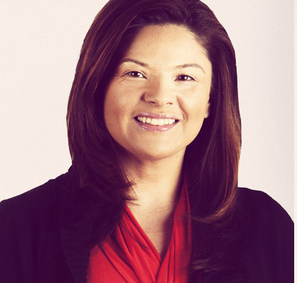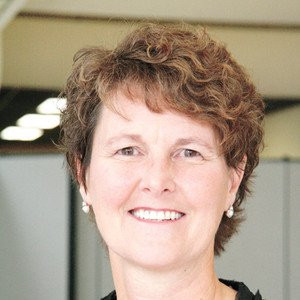It’s All About Education: Free College Tuition - Why Just Community College?
Wednesday, January 21, 2015
President Obama’s proposal that two years of community college should be free for all students who maintain a minimum GPA of 2.5 is garnering a lot of attention. After all, the number of college students borrowing federal student loans to finance their education has increased by 69% over the past ten years, with the average student borrowing $29,400. In fact, according to a recent Pew study, 75% of all Americans believe that college is too expensive. More and more people are questioning the value proposition of a college education, wondering if they can get the job training and entrepreneurial skills they need without going into debt.
What we seem to be forgetting is that there is a history of free university education in this country. My father attended the City College of New York, which was founded in 1847 to offer a free higher education for poor students, based on merit alone. The city of New York also offered free college educations to qualified students at Hunter College and Brooklyn College; together, the three eventually became known as the City University of New York. City University graduated ten Nobel Prize laureates, and notable graduates include former US Secretary of State Colin Powell and inventor of the polio vaccine Jonas Salk. The college remained free until 1976, when it began charging tuition.
New York was not alone. The state of California offered free tuition to all of its residents at the University of California (originally consisting solely of the UC-Berkeley campus) at the time of its founding in 1868 through the next 100 years. The list of accomplishments and awards received by UC graduates who benefitted from this free education is staggering, but not surprising. Although out-of-state students always paid some tuition, it wasn’t until 1970 that California students were even required to pay a “educational fee.” Since then, state funding has decreased and student tuition has increased at an alarming rate each year; California residents now pay $12,972 per year in tuition.
GET THE LATEST BREAKING NEWS HERE -- SIGN UP FOR GOLOCAL FREE DAILY EBLASTNowadays, a college that offers free tuition is something remarkable. US News & World Report provides a list of 11 free colleges for the 2014-2015 academic year: some require that students be residents of certain areas, some require work-study programs, and some are our nation’s military academies, requiring years of military service after graduation. All are highly competitive and selective, many with only 9% - 15% of applicants actually being accepted.
In October 2014, the Washington Post published an article naming other countries where American students can attend college, in English, for free (or almost free). For example, the German government now covers the cost of a college education for all students who enroll – even if they are not German citizens. Finland also charges no tuition fees for its college students. For citizens of the European Union, France charges a nominal fee for its public university programs – approximately $200 per year. State universities in Brazil and Slovenia charge only nominal registration fees for students. Norway charges no fees for international students, while Sweden offers free PhD programs for its students.
The United States likes to portray itself as the land of opportunity, a place where smart, ambitious, and driven individuals can overcome adversity to succeed in their chosen fields. But if this is the case, then why do we lag behind so many other developed countries in supporting our citizens’ pursuit of higher education? Many will argue that we cannot afford to provide a tuition-free college experience at our state schools. But a report released in 2011 showed that, if the state of California were to eliminate tuition fees for in-state students, it would cost only $3 billion – considerably less than the $11 billion loss proposed by gubernatorial candidate Meg Whitman, who wanted to eliminate the capital gains tax.
President Obama’s plan is a start, but I don’t think it goes far enough. Instead, our federal government should be encouraging states to offer free in-state tuition at all of their public colleges, so that qualified students can earn a college degree without going into debt or depleting their families’ savings. In a small state like Rhode Island, there are three public colleges/universities: the University of Rhode Island (URI), Rhode Island College (RIC), and the Community College of Rhode Island (CCRI). In-state tuition at the three is $10,878, $7,602, and $3,624; respectively. Free tuition for state residents would keep some of our best and brightest students here in Rhode Island, not only for their education, but also for their careers. It seems like a winning proposition for all of us.
Lauri Lee is an independent consultant with over twenty years of experience in both public and private education, with learners from infants through adults. With experience in marketing, communications, social media, development, admissions, and technology, she is able to synthesize many of the issues facing our educational system today. She lives in Providence with her family, a big dog, and a small cat. She encourages you to connect with her on Twitter @fridovichlee or to contact her directly at [email protected].
Related Slideshow: RI Experts on the Biggest Issues Facing Public Education
On Friday November 22, the Hassenfeld Institute for Public Leadership at Bryant University, the Latino Policy Institute of Roger Williams University, the Rhode Island Association of School Committees, the Providence Student Union, and RI-CAN: Rhode Island Campaign for Achievement Now will host Rhode Island leaders in the public and nonprofit sectors for a symposium on "the civil rights issue of the 21st century, adequacy and equity and the State of Education in Rhode Island."
Weighing in on the the "three biggest factors" facing education in the state today are symposium participatnts Gary Sasse, Founding Director of the Hassenfeld Institute for Leadership; Christine Lopes Metcalfe, Executive Director of RI-CAN; Anna Cano-Morales, Chairwoman of the Board of Trustees, Central Falls Public Schools and Director, Latino Policy Institute at Roger Williams University; Tim Duffy, Executive Director, RI Association of School Committees; and Deborah Cylke, Superintendent of Pawtucket Public Schools.
Related Articles
- It’s All About Education: Is it Time for a Slow Education Movement?
- It’s All About Education: Chronic Absenteeism’s Effect on Learning
- It’s All About Education: Student Engagement Leads to Success
- It’s All About Education: Making the Dream a Reality
- It’s All About Education: The Connection Between Housing and Achievement
- It’s All About Education: It’s About Time
- It’s All About Education: Pediatricians’ Group Finally Jumps on Early Literacy Bandwagon
- It’s All About Education: Could Text Messaging Make Us Better Parents?
- It’s All About Education: Can Recess Help Children Be More Successful?
- It’s All About Education: Do You Trust Your Child’s Teacher?
- It’s All About Education: Playing in the Woods Can Help Kids Reach Their Full Potential
- It’s All About Education: What if College Isn’t Necessary
- It’s All About Education: The High Cost of Higher Education
- It’s All About Education: The Rise in Kindergarten Readiness Testing
- It’s All About Education: Some of Education’s Best Ideas from 2014
- It’s All About Education: Social Promotion is Not the Problem
- It’s All About Education: How Can We Ensure that Kids Have Great Teachers?
- It’s All About Education: Can Universal Preschool Close the Achievement Gap?
- It’s All About Education: Why Common Core Won’t Help Our Children
- It’s All About Education: Will Charter Schools Fix Our Public School System?
- It’s All About Education: What is an “Excellent” Teacher, Anyway?
- It’s All About Education: Schools that Harness the Power of Nature













